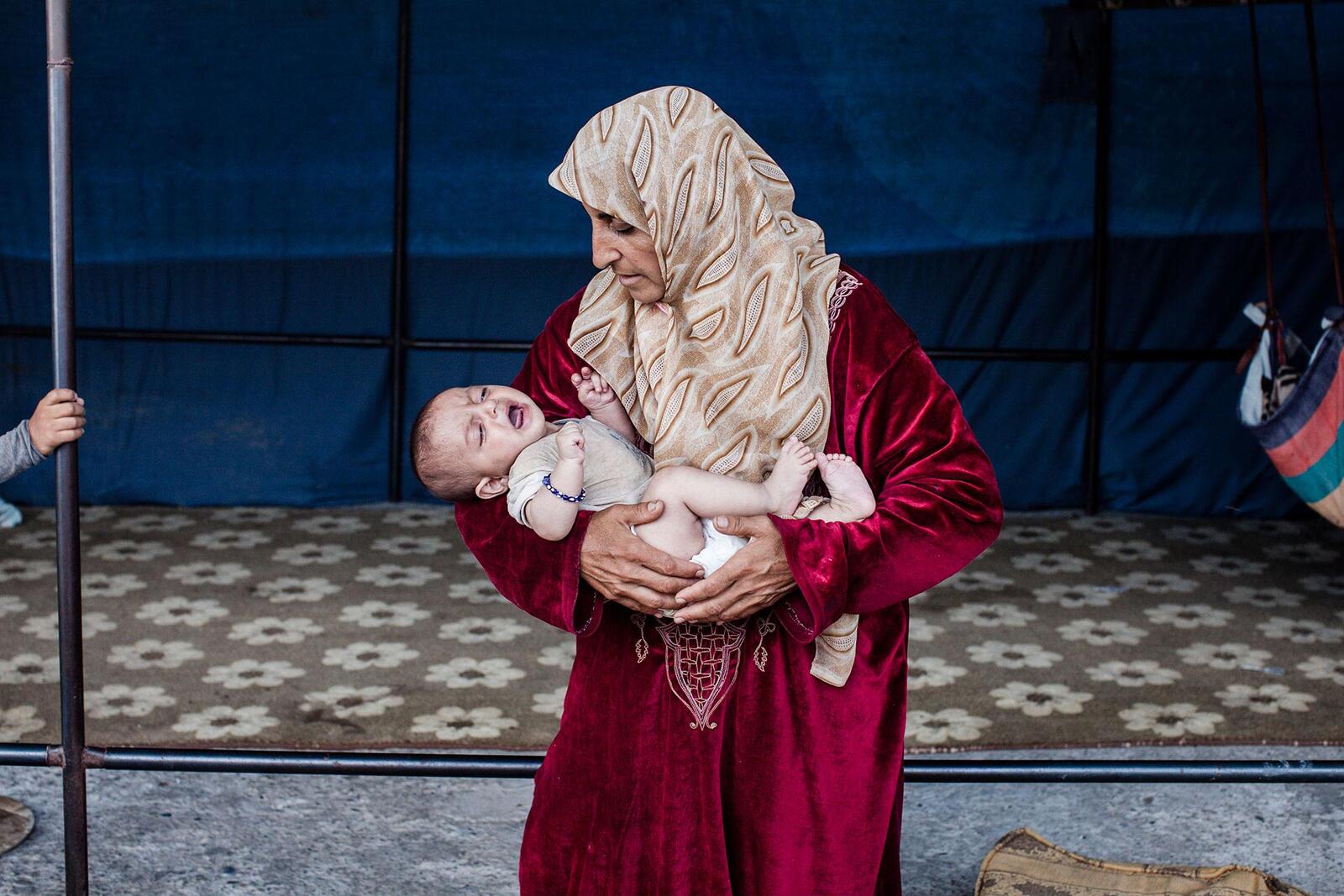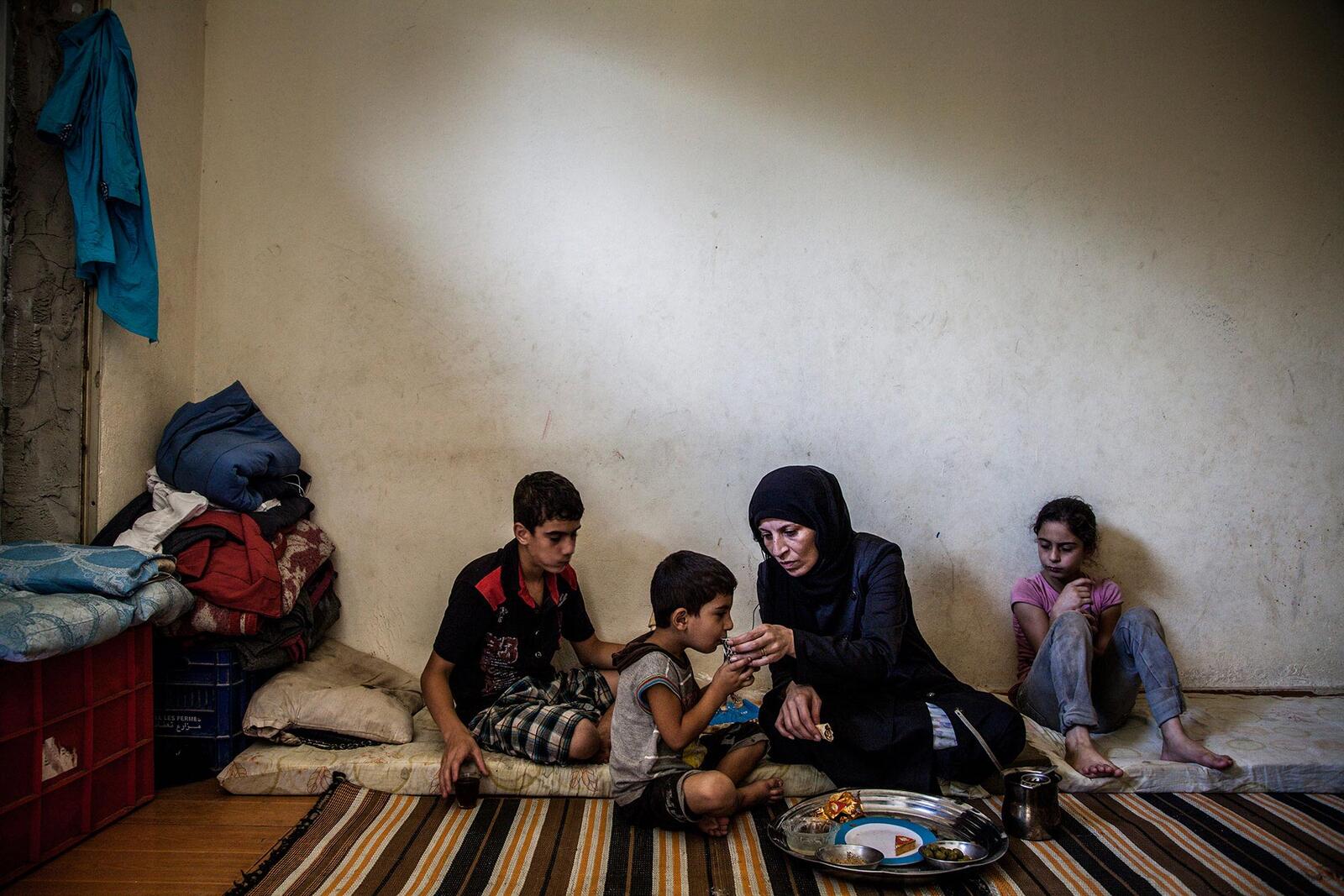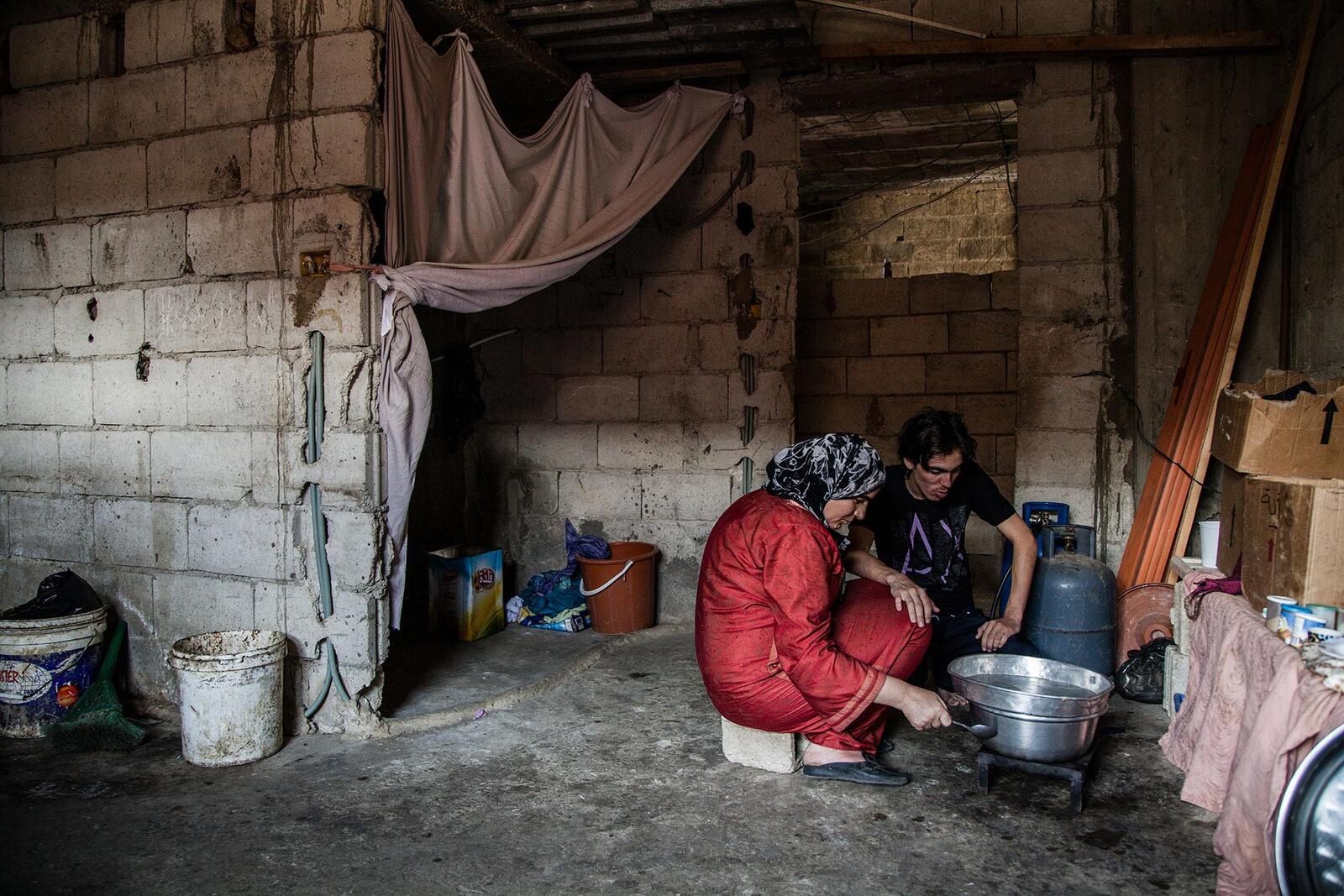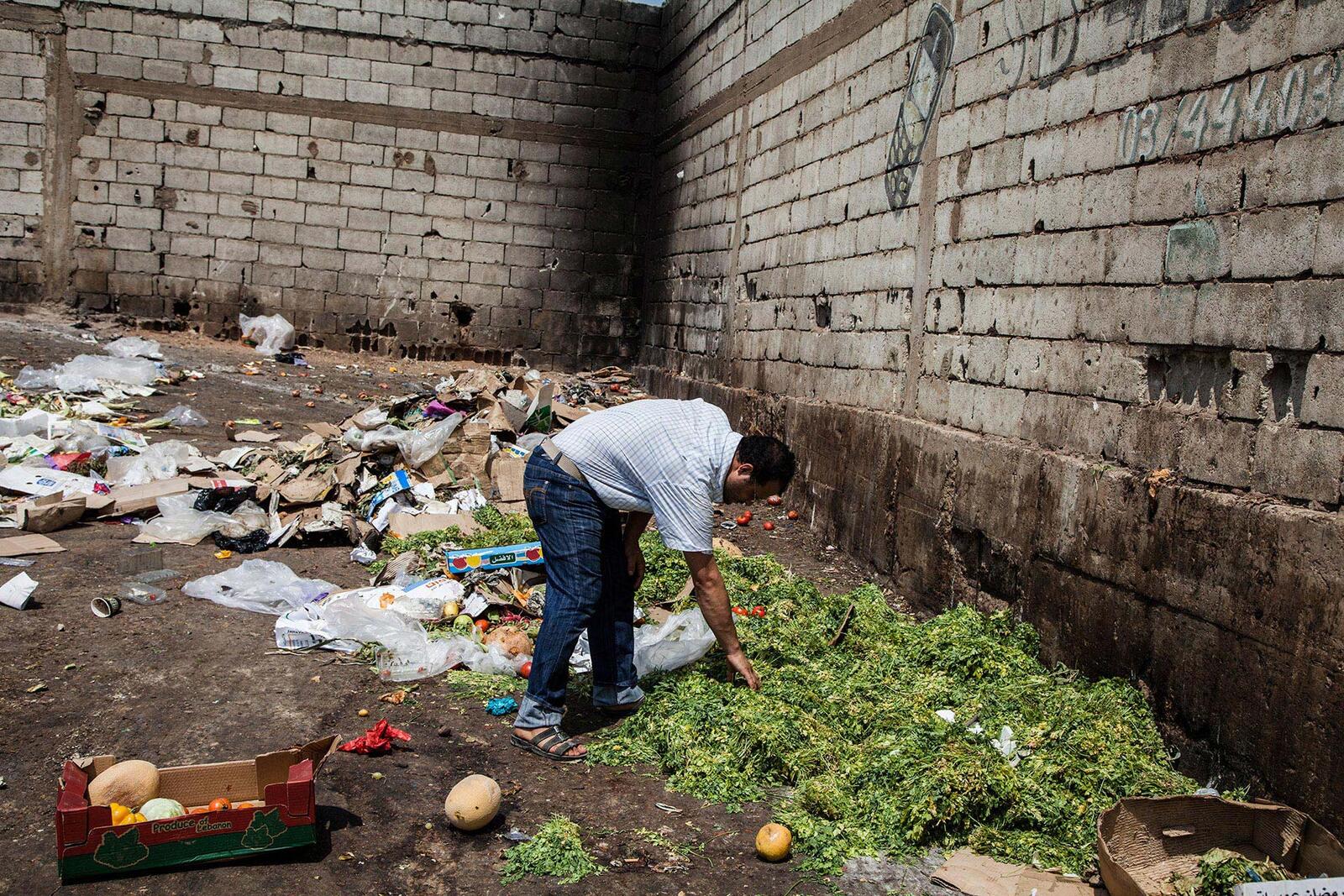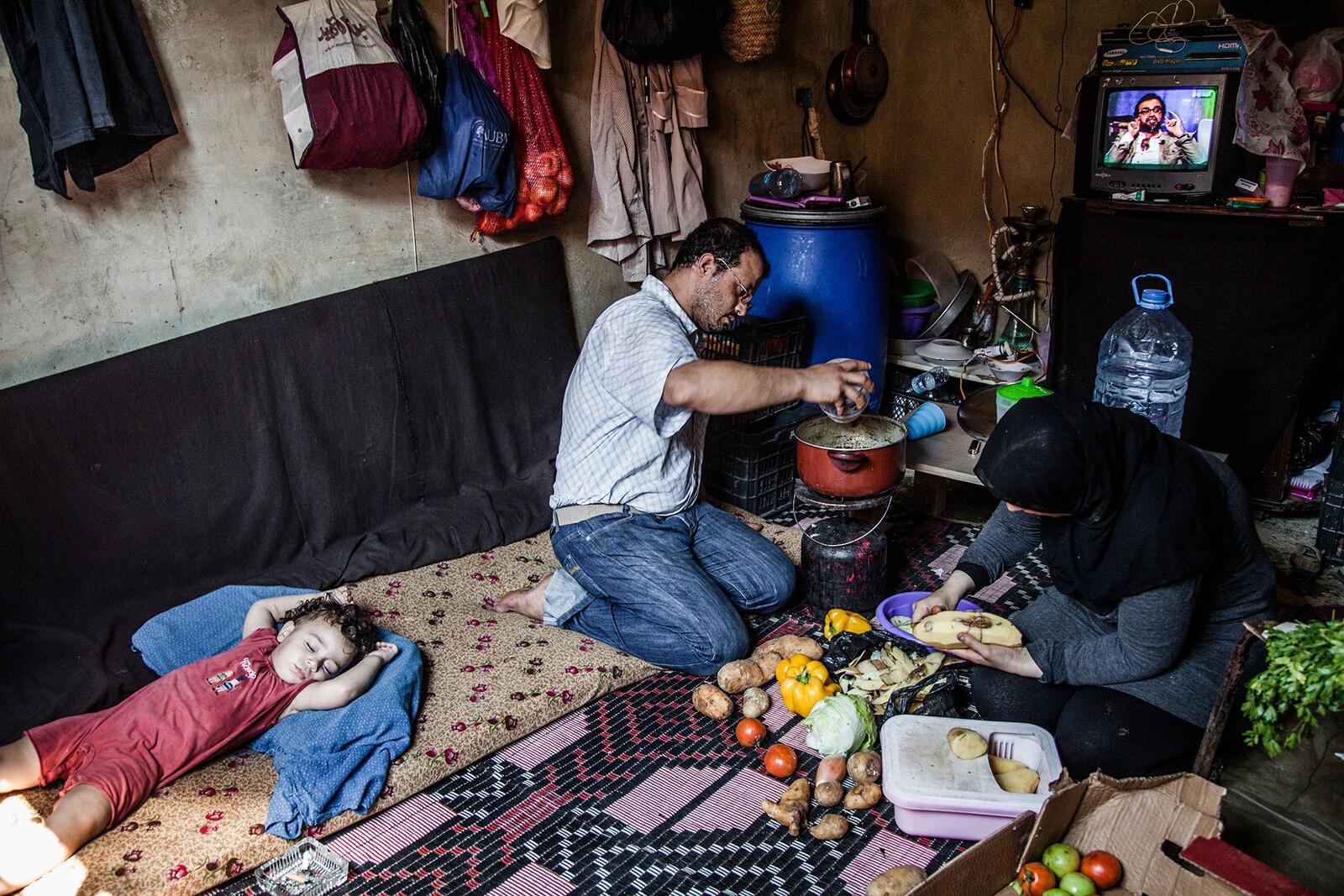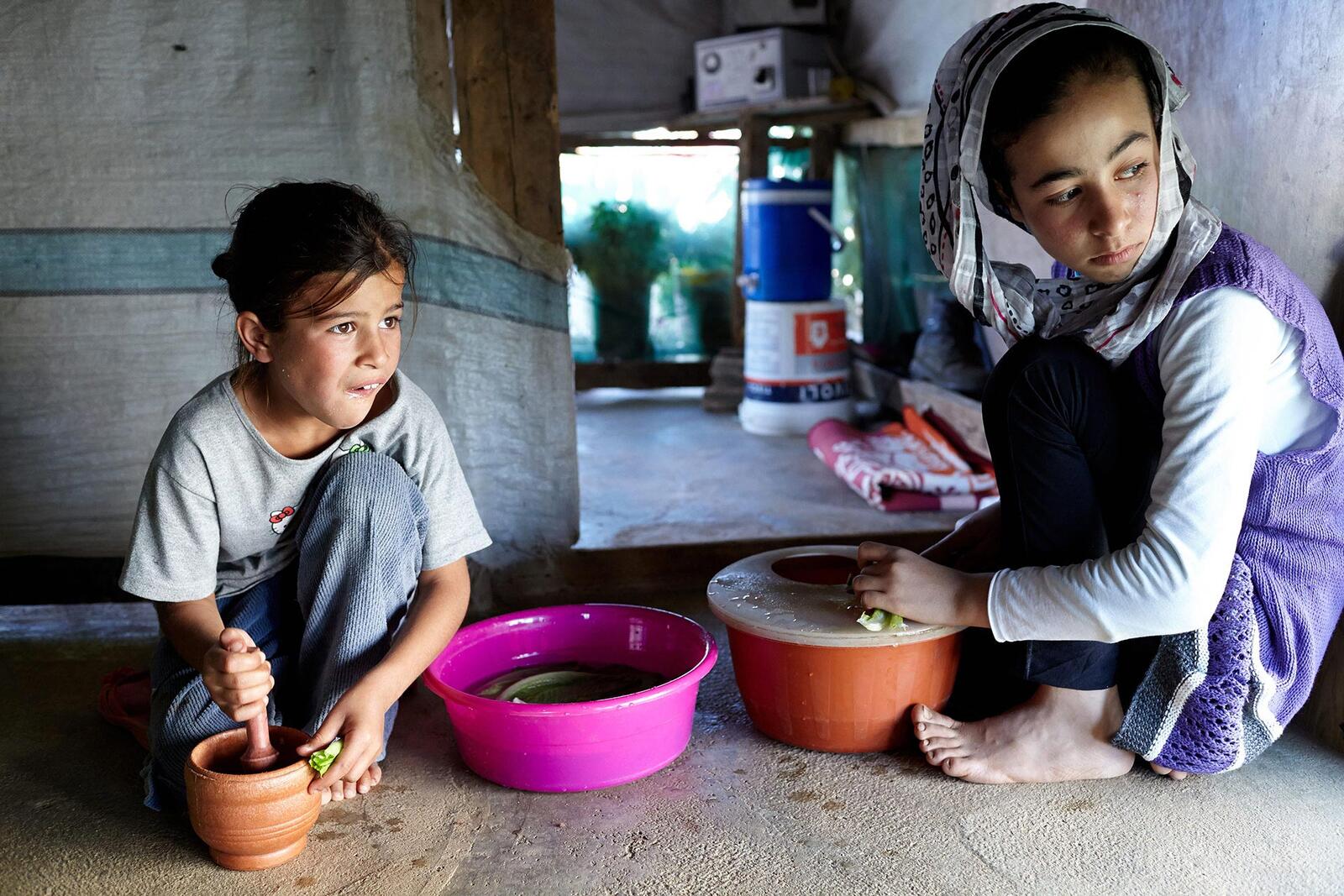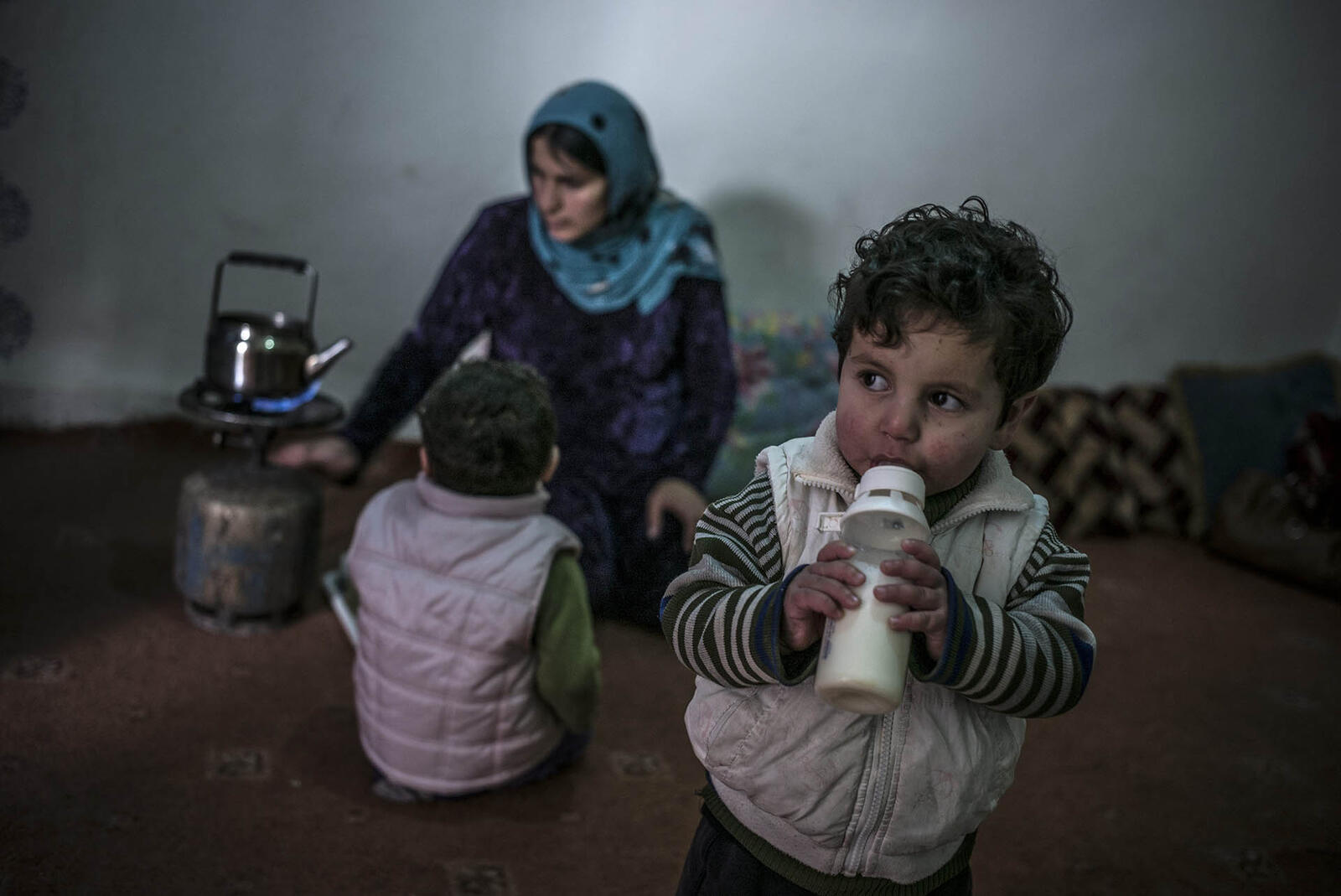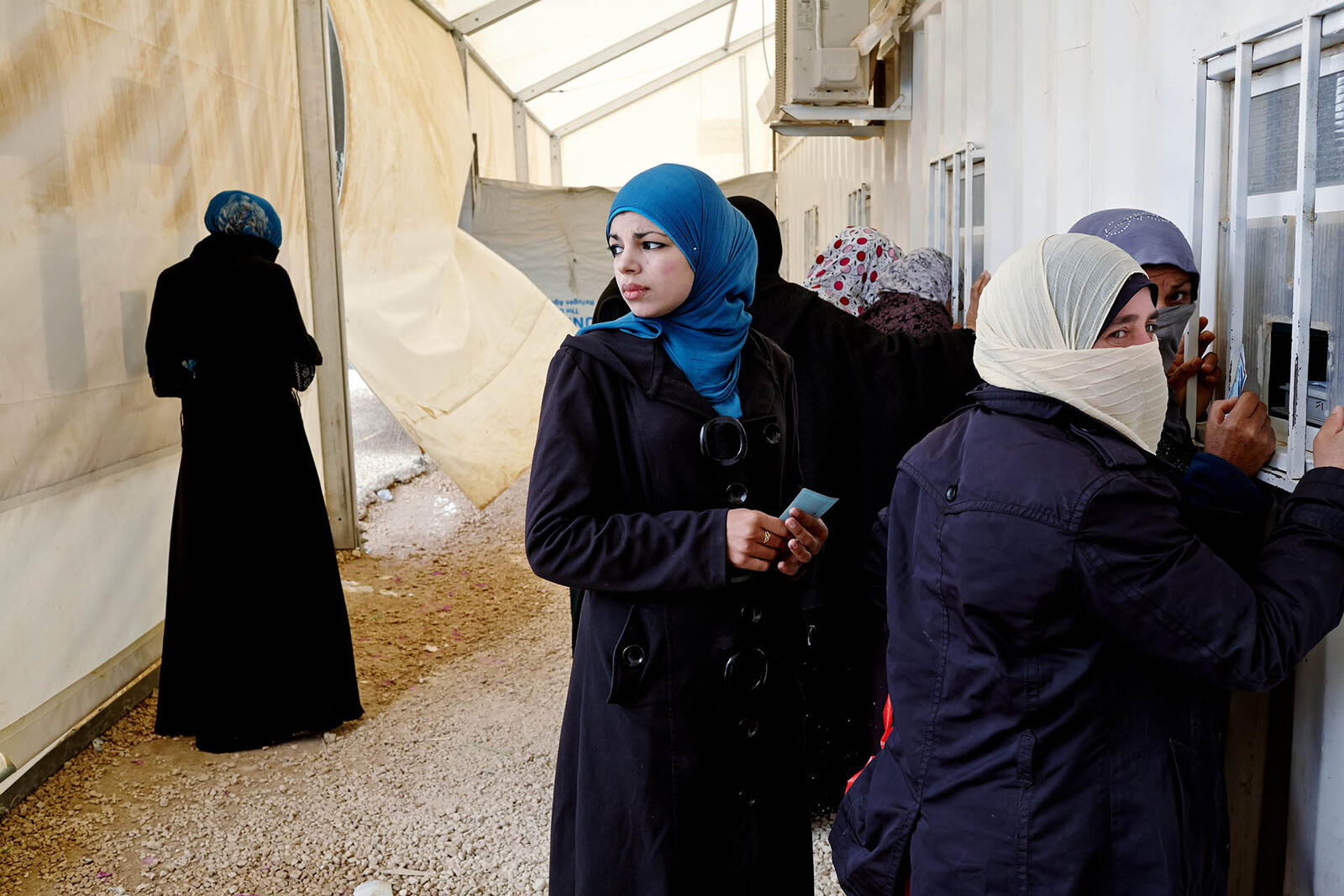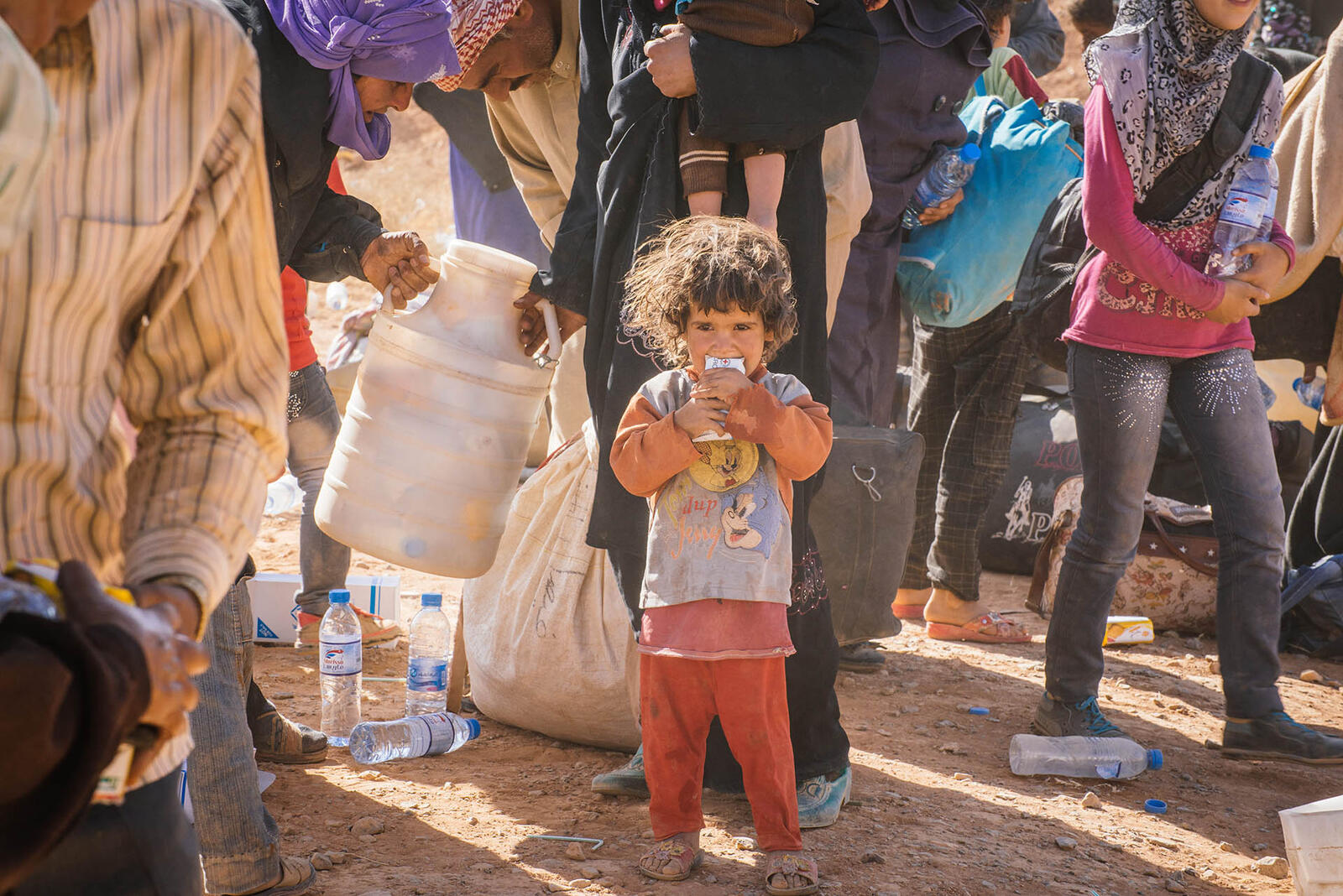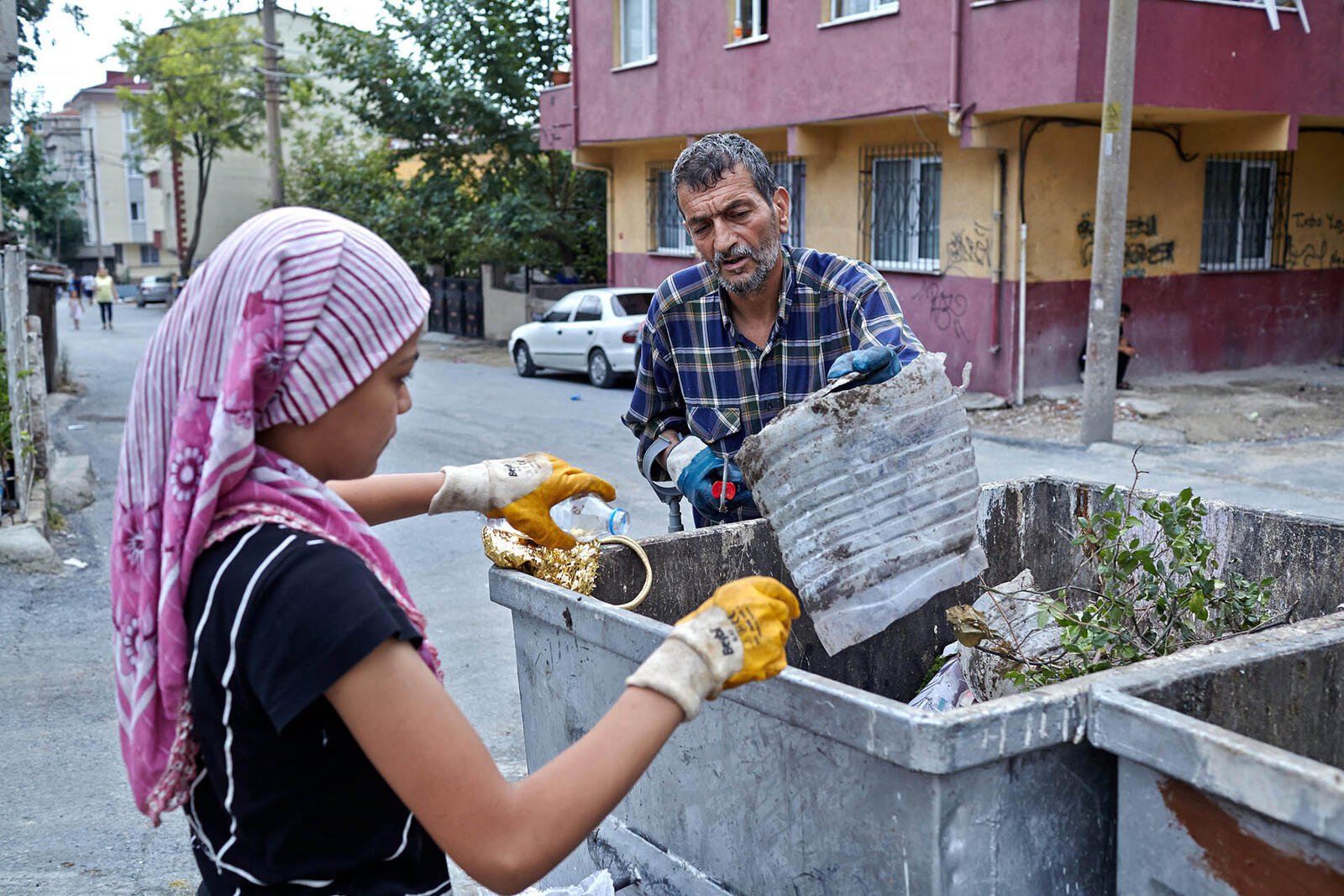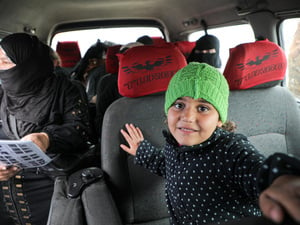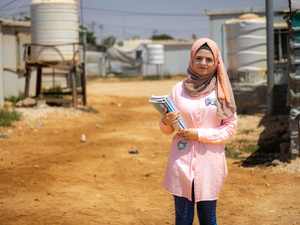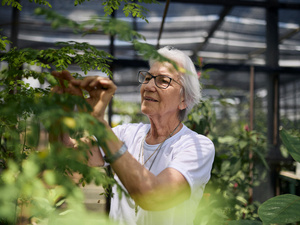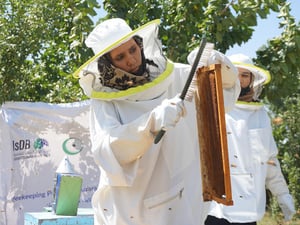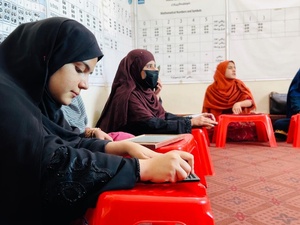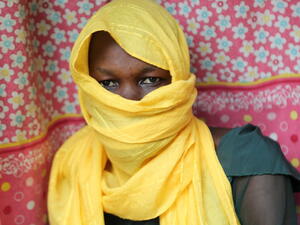Syrian refugees face new hunger threat

Syrian refugees face new hunger threat
Tens of thousands of Syrian refugee families, already bracing for yet another winter of misery, now have even more to worry about: hunger.
The World Food Programme announced Dec. 1 that a funding crisis was forcing it to suspend immediately a critical programme providing food vouchers to more than 1.7 million Syrian refugees in neighbouring countries.
Ertharin Cousin, WFP's Executive Director, said the agency needed $64 million in December alone for refugee food assistance in host countries surrounding the war-torn nation. Those countries include Lebanon, Jordan, Iraq, Turkey and Egypt, which together host more than 3 million Syrian refugees.
"A suspension of WFP food assistance will endanger the health and safety of these refugees and will potentially cause further tensions, instability and insecurity in the neighbouring host countries," said Cousin, in an appeal to donors. "The suspension of WFP food assistance will be disastrous for many already suffering families."
"Winter is already an extremely difficult period for Syrian refugees," Guterres said, "but the suspension of food assistance… is going to be devastating."
In Geneva, UN High Commissioner for Refugees António Guterres issued an urgent appeal for immediate funding for WFP.
"This couldn't come at a worse time," said Guterres, whose agency is investing $102 million across the region to provide non-food aid to help Syrian refugees get through the cold months.
"Winter is already an extremely difficult period for Syrian refugees," he added, "but the suspension of food assistance at this critical juncture is going to be devastating. It will impact tens of thousands of the most vulnerable refugee families who are almost entirely dependent on international aid. I urgently appeal to the international community: Support WFP now. Don't let refugees go hungry. "
The suspension of food aid could be particularly devastating in Lebanon, where more than 1.1 million Syrian refugees – equal to a quarter of the country's population – are scattered across some 1,700 communities. There are no formal camps, and many of the refugees live in ramshackle settlements, sheds, garages and unfinished buildings. While WFP is responsible for food, UNHCR is providing shelter weatherproofing kits and other winter relief supplies and assistance for some 660,000 refugees throughout the country. For many Syrian refugees, this will be their fourth winter in exile. With each passing year, they become increasingly dependent on outside help as their own resources are depleted.
Lina, a mother of seven in Lebanon's Bekaa Valley, depends on food aid for her family. She and her children, some of whom suffer from a skin disease, live in a makeshift shelter in one of thousands of so-called informal settlements throughout the country.
"Our situation is very difficult, helpless, what can I tell you," Lina said. "If it wasn't for the food assistance we get every month, I don't know where we would be. My children are sick, as you can see. Many days I spend less, a lot less, on food to be able to afford medication. A lot, not just a little."
In another tented settlement nearby, 13-year-old Lamia said she and her family arrived from the Syrian city of Raqaa four months earlier with nothing but the clothes on their backs. They don't even have enough money to buy bread and are staying with relatives.
"In the morning the baker comes here, we pay on credit because we don't have money," she said. "We just borrow and borrow to eat. Then the grocer comes, but he doesn't always sell on credit because we haven't always been able to pay back. We keep telling them we will pay later."
Many families skip meals to make their meagre food supplies last longer. In the city of Tripoli, in northern Lebanon, 31-year-old Fadia cares for four young children alone. Her husband was killed when shelling destroyed their home in Syria.
"Sometimes we delay breakfast so we can eat lunch late because we can only afford two meals a day," Fadia said. "Sometimes it is one meal a day, depending on how much I can afford. Meat we eat once a month when we get food handouts. Every now and then I might buy it so the children don't miss it too much. Vegetables are very expensive. I can't buy a lot, only what is necessary. We eat rice, pasta, yogurt, cheese – things like that. The kids like them."
WFP says if new funding arrives in December, it will immediately resume assistance for refugees who use electronic vouchers to buy food in local shops.
But if those new funds don't come soon, Fadia, Lina, Lamia and their families are in for a long, cold and hungry winter.


